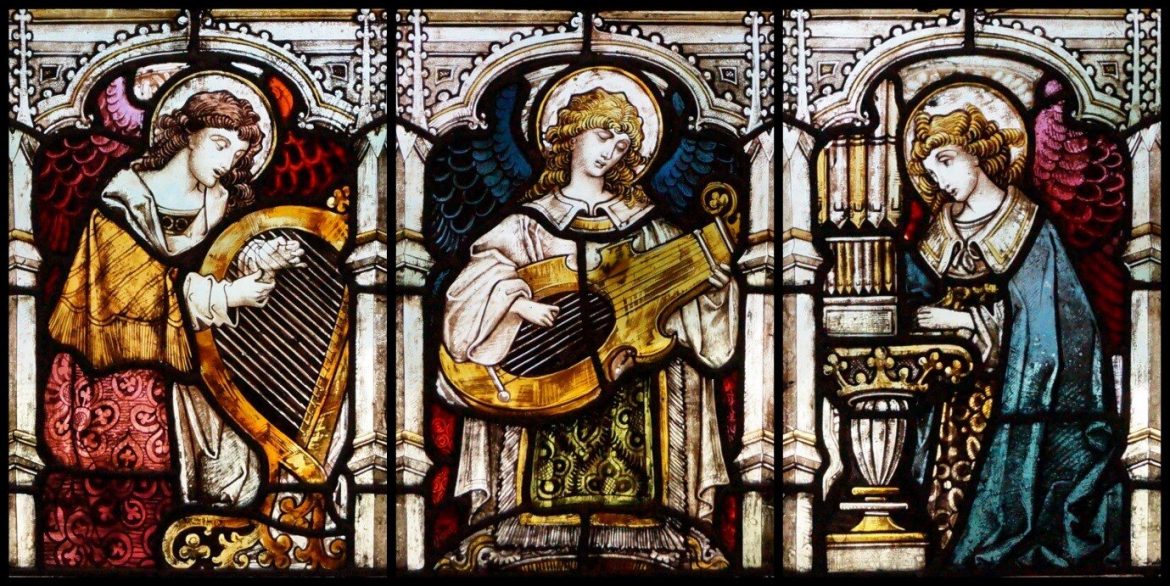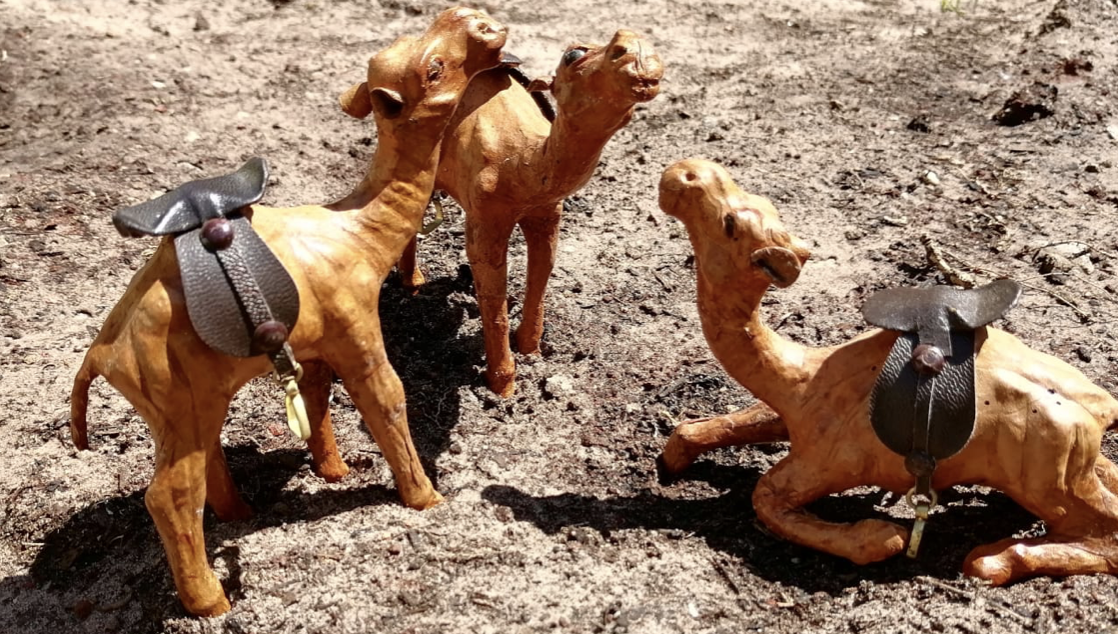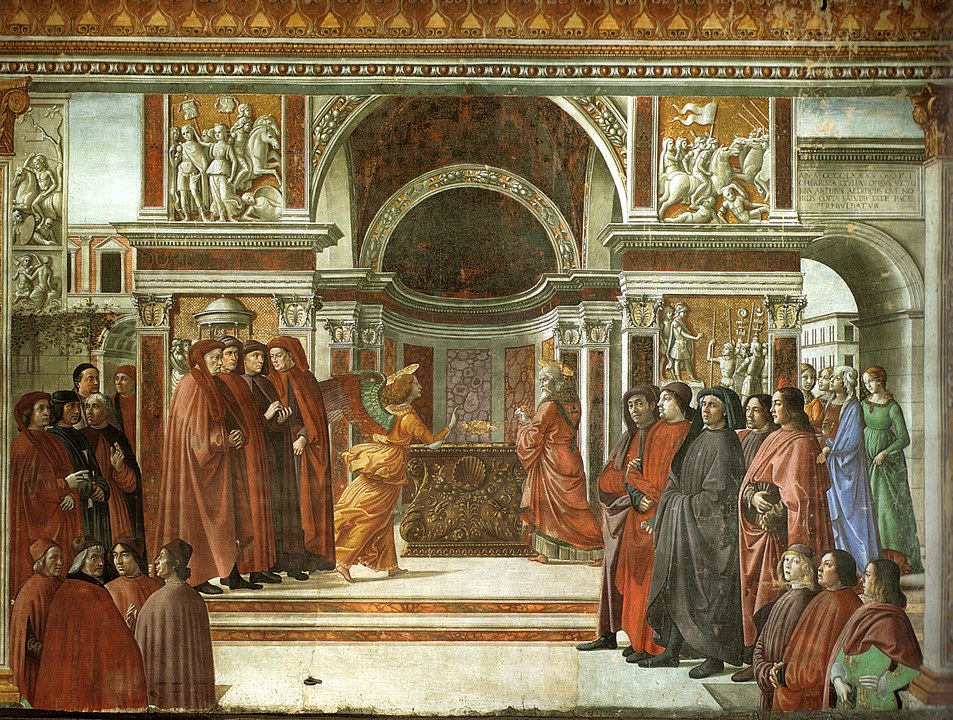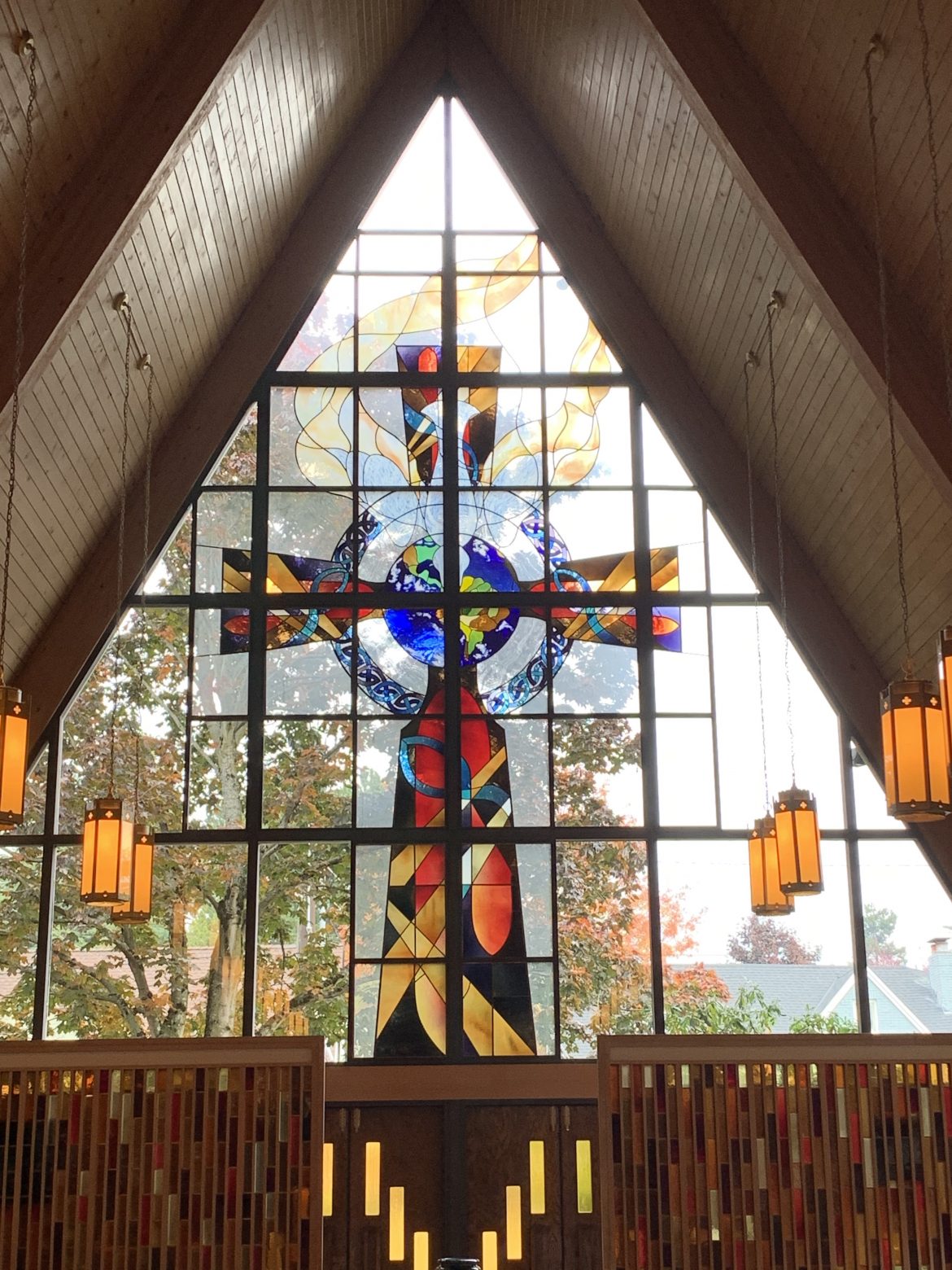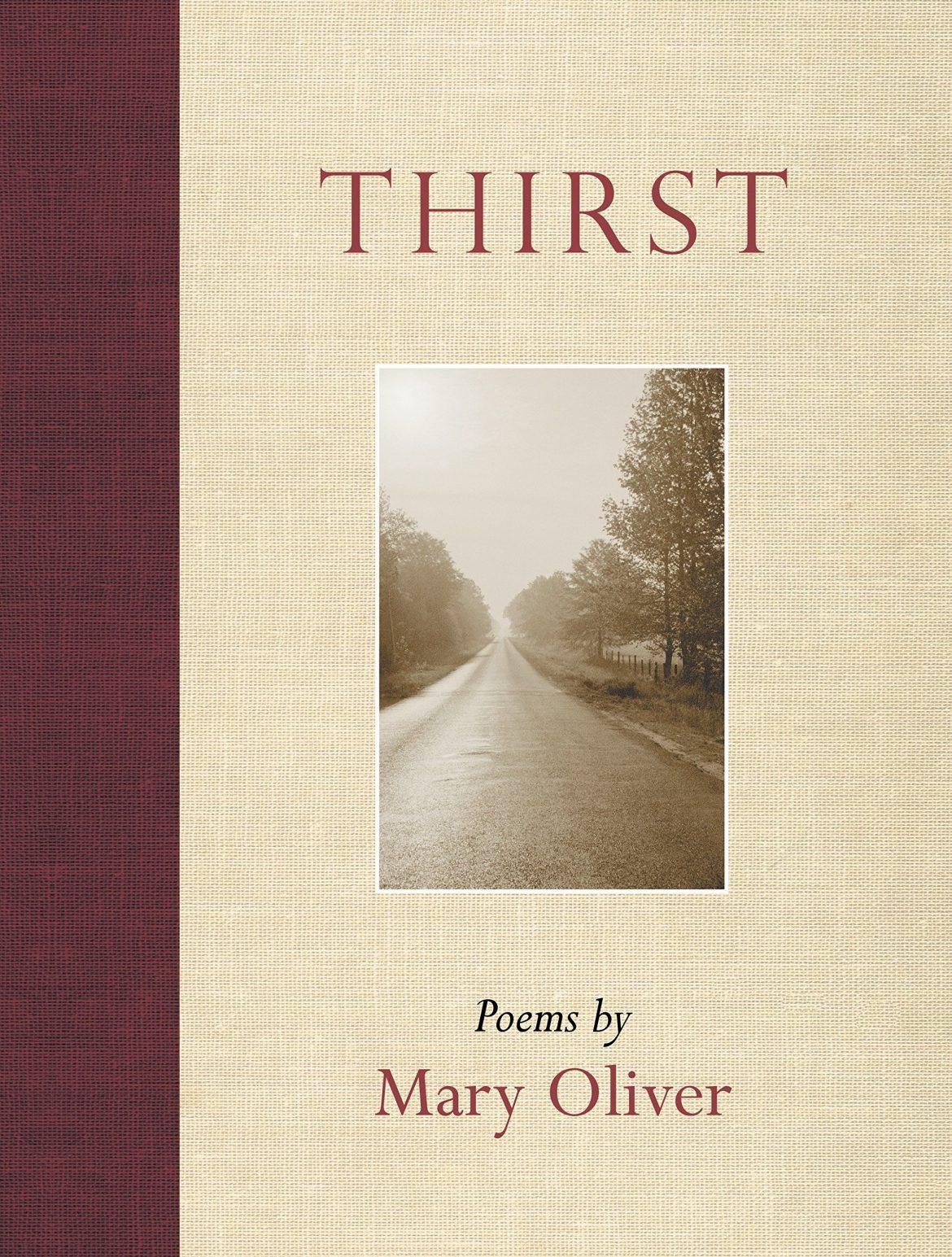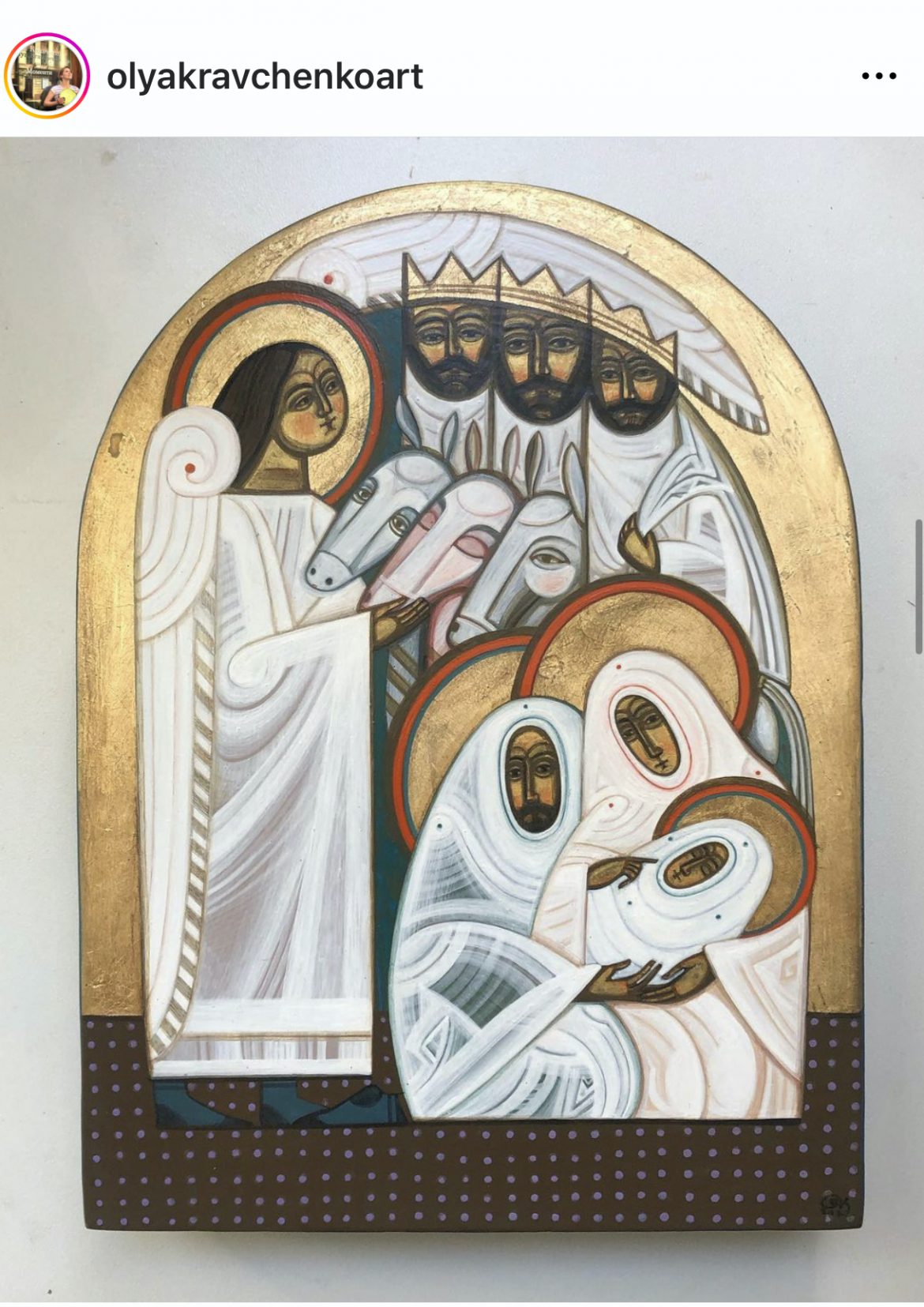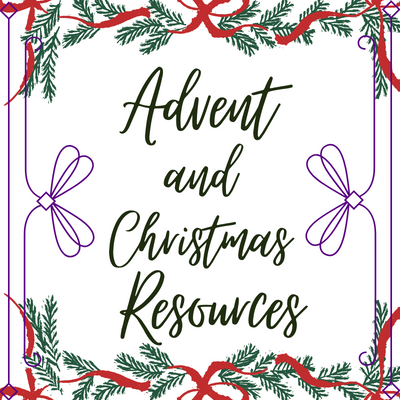Advent Oratorio –
Advent is more complicated than Easter. When Paul Spicer approached me about writing a follow-up to our ‘Easter Oratorio’, suggesting we take Advent as the theme, it seemed to me both completely appropriate and freshly challenging. Easter is about one single, massive moment: the resurrection of Jesus Christ from the dead. We have four different accounts of that moment and its immediate aftermath, and for the Oratorio we took John’s version as having the most obvious and varied ‘human interest’, in the meetings of the risen Jesus with several of his followers. Advent isn’t like that. It’s about two different historical moments which, though they’re umbilically joined, do not immediately reveal how they fit together. The great, massive Advent moment is still to come in the future, and this provides the over-arching structure of the present Oratorio…
This chorus is an extract from the oratorio that was performed at Lichfield Cathedral in 2009.
A Chorus from the piece
Paul Spicer & N.T. Wright
Come, Lord, and cleanse us from our sin;
Your new, glad work in us begin.
Remove our idols from our sight;
Let us in you alone delight.
Prepare us for your coming reign
By washing us from every stain;
Make known to us your holy Name;
Let us no more turn back to shame.
Call us to you from every land,
And guide us with your powerful hand;
Show us the path that we must tread,
Let us by you with joy be led.
Implant your Spirit in our heart,
That, with your Breath, new life may start;
Take from our flesh the heart of stone,
Let us rejoice in you alone.
For your own sake your love display,
That we may worship and obey;
Rebuild the wild and desert place;
Let us acclaim your sovereign grace.
Read more from N.T. Wright and download his free Advent ebook here.
by Barbie Perks
On Saturday past, I gave a little talk at a tea on how to become more mindful at Christmas, how to use the Advent period to focus more intentionally on the “reason for the season” and how to not fall into the trap of commercialising our faith. Some stores are selling goods that commercialise Advent these days – the ubiquitous advent calendars, and now I see peace, joy, hope stockings in store too.
As I was drawing attention to a nativity scene, I picked up a camel and asked whether we could use this as a symbol to help us remember and pray for those who are on long journeys:
- The plight of refugees we see on the news broadcasts every day
- The nomadic and homeless
- The starving and dispossessed
- Those who might have walked away from childhood faith, seeking their own way
- Those on the unending journey to sobriety
- Those who have been walking the lonely valleys of grief and loss
- Those who have just received news of illness, and impending death
- Those who struggle to navigate the despair of mental health
Camels have such a capacity for going the journey. They are beasts of burden, capable of bearing heavy loads, and keeping going through very adverse conditions. Check it out here.
Galatians 6:2 reminds us to “carry each other’s burdens and so fulfil the law of Christ”. There may be times in life when we may be invited to ”become camels” for a short period, to walk alongside a friend or family member and help them to shoulder the burden. At other times, just as Rebecca watered the camels of Abraham’s servant, so we might be called to “water” or “refresh” those who have depleted their stores of resilience.
Are there any “camels” in your vicinity? In what way can you fulfil the law of Christ today? “A new command I give you: Love one another. As I have loved you, so you must love one another. By this everyone will know that you are my disciples, if you love one another” (John 13:34-35). How can you effectively love someone you know is burdened?
May your own personal journey this season be a blessed one, knowing that you are not alone but that you are part of a greater community, a body, a living, breathing extension of Jesus reaching out to the world around you.
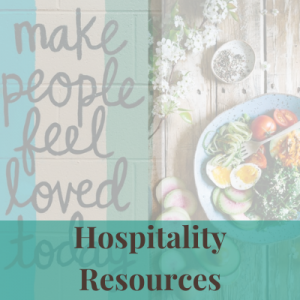 Looking for hospitality inspiration? We have an entire resource page dedicated to hospitality. Find recipes and reflections on numerous hospitality topics, including Celtic hospitality, prayers, and liturgies. Click on Hospitality for more!
Looking for hospitality inspiration? We have an entire resource page dedicated to hospitality. Find recipes and reflections on numerous hospitality topics, including Celtic hospitality, prayers, and liturgies. Click on Hospitality for more!
by Christine Sine
I always knew that Advent was a radical season, but I did not realize how radical until I started preparing for our theme Proclaiming Justice, Seeking Peace Through Advent. First there is Mary the rebel, whom I talked about last week. Now I want to introduce you to Zacharias the father of John. He too was a bit of a rebel. In spite of the objections from his family he called his son John and made an incredible proclamation of freedom and liberation at his birth.
As we read Zacharias’s song, sometimes called The Benedictus, I wonder if Mary was standing there listening and lapping up his words. Luke tells us she spent 3 months with Elizabeth who was in her sixth month when she arrived so it seems she left to return to Nazareth either just before or just after John’s birth. Just after seems more likely to me. How many times, I wonder did Elizabeth, and Mary discuss the angel’s words, with the silent Zacharias listening? She had listened expectantly to the angels and sung their song of liberation. It obviously resonated in Zacharias’s soul and now his first words, his words of liberation you might say, echoed the Magnificat, and reinforced the promises that had already taken root in Mary’s heart. Listen to Zacharias’s song in Luke 1:67- 79. (The Voice)
May the Lord God of Israel be blessed indeed!
For God’s intervention has begun,
and He has moved to rescue us, the people of God.
And the Lord has raised up a powerful sign of liberation for us
from among the descendants of God’s servant, King David.
As was prophesied through the mouths of His holy prophets in ancient times:
God will liberate us from our enemies
and from the hand of our oppressors!
God will show mercy promised to our ancestors,
upholding the abiding covenant He made with them,
Remembering the original vow He swore to Abraham,
from whom we are all descended.
God will rescue us from the grasp of our enemies
so that we may serve Him without fear all our days
In holiness and justice, in the presence of the Lord.
And you, my son, will be called the prophet of the Most High.
For you will be the one to prepare the way for the Lord.
So that the Lord’s people will receive knowledge of their freedom
through the forgiveness of their sins.
All this will flow from the kind and compassionate mercy of our God.
A new day is dawning:
the Sunrise from the heavens will break through in our darkness,
And those who huddle in night,
those who sit in the shadow of death,
Will be able to rise and walk in the light,
guided in the pathway of peace.

The Benedictus, the Song of Zechariah, has been said or sung in early morning worship since it was introduced by Benedict of Nursia in the sixth century. It is a song of blessing (‘Benedictus’ means blessing in Latin) and hope. But it is a song that also speaks of times of hardship and the anticipation of freedom from oppression. It begins, ‘May the Lord God of Israel be blessed indeed! For God’s intervention has begun, and He has moved to rescue us, the people of God.’ – we are reminded that God’s people were once enslaved, had enemies and longed to be able to worship God in freedom.
Zechariah’s song sprung out of a time of hopelessness. The Bible tells us that he was an elderly priest who, with his wife Elizabeth, was ‘getting on in years’. They had no children. The priests would take on a week’s duty in the temple where they officiated at services: a bit like being Canon-in-Residence in our Cathedral. One day whilst in the temple Zechariah encountered an angel who promised him a son, to be called John. He was told he would have ‘joy and gladness’, that the child ‘will be great in the sight of the Lord’. (Luke 1.14)
But Zechariah didn’t believe the angel.
“How will I know that this is so?” he asked. “For I am an old man, and my wife is getting on in years.” (Luke 1.18)
From that moment he became mute, unable to speak at all. He remained silent throughout the entire pregnancy and didn’t speak until his baby was eight days old. It was only when he announced, ‘His name is John’ that his tongue was freed and he began to sing his song of blessing and hope. Did his sudden freedom to speak out strengthen Mary’s resolve to bring up her child to be the liberator the Hebrews were looking for?
Within the Benedictus there are great themes of hope and salvation.
There is hope for the salvation of the people of Israel: ‘a mighty saviour’ is on his way. There is hope for Zechariah’s son John who will prepare the way for Jesus with his father’s prophetic blessing upon him. And there is hope for all people,: for each one of us. “A new day is dawning: the Sunrise from the heavens will break through in our darkness, And those who huddle in night, those who sit in the shadow of death, Will be able to rise and walk in the light, guided in the pathway of peace.”
I love these words reminiscent of Isaiah 9:2 which all of Zacharias friends and family would have recognized as referring to the hope for the coming of the Messiah, the Prince of Peace, the One who would make all things right and bring justice for them and for all humanity. Some of them, I am sure, would know Mary and had probably heard the rumors of her pregnancy and the possibility that the child she carried was the hoped for Messiah. Perhaps they whispered their hopes and dreams for the liberation of their nation from the oppression of the Roman Empire, little realizing that the child to be born promised peace and freedom for all the peoples of the world.
Who are the singers of freedom and justice in your life? Who are the ones that proclaim the coming of Christ not as a meek and vulnerable child, but as the bringer of peace for all.
Read these words from Isaiah 9:6,7 and reread Zacharias’s song above. How does it make you feel? Are you excited for the coming of God’s son who will “ensure justice without fail and absolute equity, always.” ? If so, in what ways does the promise of Christ’s coming in all its fullness impact the way you live now?
Hope of all hopes, dream of our dreams,
a child is born, sweet-breathed; a son is given to us: a living gift.
And even now, with tiny features and dewy hair, He is great.
The power of leadership, and the weight of authority, will rest on His shoulders.
His name? His name we’ll know in many ways—
He will be called Wonderful Counselor, Mighty God,
Dear Father everlasting, ever-present never-failing,
Master of Wholeness, Prince of Peace.
7 His leadership will bring such prosperity as you’ve never seen before—
sustainable peace for all time.
This child: God’s promise to David—a throne forever, among us,
to restore sound leadership that cannot be perverted or shaken.
He will ensure justice without fail and absolute equity. Always.
The intense passion of the Eternal, Commander of heavenly armies,
will carry this to completion.
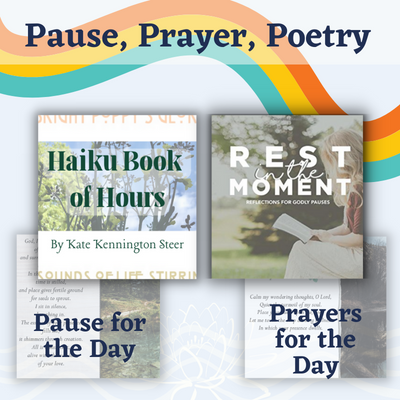 Whether you are praying the stations of the day, in need of resources for rest, hoping to spark joy and find wonder, or simply want to enjoy beautiful prayers, poetry, and art – our digital downloads section has many options! Christine Sine’s book Rest in the Moment is designed to help you find those pauses throughout the day. Praying through the hours or watches, you may find inspiration in our prayer cards set Prayers for the Day or Pause for the Day. You may find your curiosity piqued in the free poetry and art download Haiku Book of Hours. All this and more can be found in our shop!
Whether you are praying the stations of the day, in need of resources for rest, hoping to spark joy and find wonder, or simply want to enjoy beautiful prayers, poetry, and art – our digital downloads section has many options! Christine Sine’s book Rest in the Moment is designed to help you find those pauses throughout the day. Praying through the hours or watches, you may find inspiration in our prayer cards set Prayers for the Day or Pause for the Day. You may find your curiosity piqued in the free poetry and art download Haiku Book of Hours. All this and more can be found in our shop!
A contemplative service with music in the spirit of Taizé. Carrie Grace Littauer, prayer leader, with music by Kester Limner and Andy Myers. Also there will be a live Taize style service at St Andrews Episcopal Church at 5pm December 4th. See you there.
“See I Am Near”
Words, Music by Taizé copyright © 2008 GIA/Les Presses de Taize. All rights reserved.
“Maranatha, Come Lord Jesus”
Written for The University Of Notre Dame Folk Choir by Steven C. Warner, released on the album “Prophets of Joy” / Copyright 1996 World Library Publications, all rights reserved.
“Maker Song”
Music and lyrics by Kester Limner, 2019
Shared under the Creative Commons License, Attribution (CC-BY)
“The Lord is my Light”
Copyright and all rights reserved by GIA/Les Presses de Taizé
Permission to podcast/stream the music in this service obtained from One License with license #A-710-756.
by Diane Gagné
Appearances seem beautiful. Even if sometimes it’s attractive and other times not so much, we’re powerfully magnetized by appearances.
In appearances, there’s movement, inconsistency, unconsciousness. There can be a lot of knowledge, hints of intelligence and benevolence, but rarely regularity and stability.
Life is constantly moving and changing. We can follow it, observe it, distance ourselves from it or participate in it. Speed and precipitation invite us to dive into it, but rarely to drop us there to let ourselves float. And it’s unfortunately when we find ourselves drowned or engulfed by life, that we sink and find ourselves in its depths.
In our depths.
There’s a treasure at the bottom of each of our personal little oceans. Going to discover it can seem difficult to us, make us dizzy or even frighten us. But there’s practically no danger in visiting them. The abyss is bottomless and the water in it is rejuvenating.
There’s no danger in facing and fully living the emotional register of life. Nobody dies at the end of their tears, and we will never suffocate by dint of expressing ourselves too much. Of course, in appearance, emotional outbursts remain frowned upon. In society, losing self-control is a sign of weakness and there are many spiritual teachings that still convey today that it’s necessary to know how to control oneself. But one can only truly control oneself after having fully experienced and expressed what has been repressed. And the art of adequately expressing one’s emotions is the only real spiritual teaching to transmit in a world that doesn’t yet know what to do with them. Who doesn’t understand their meaning any more than their usefulness.
If some prefer to remain with the idea that the spiritual path has a destination called enlightenment, they will also have to keep in mind that if we’re going somewhere, it’s because we have also started from a starting point. Therefore, there’s an itinerary made up of roads, crossroads and places to visit. However, these places can be found nowhere else than in our depths. In all that hides and lurks in the person who wants to remain in control of what he or she intends to project as an image of him or herself, for the appearances.
Otherwise, Truth has nothing to do with appearances. Truth will always seek to go beyond these, to pierce the secret hiding in stories we love to tell, when the time comes to make claims of intention. Truth has nothing to do with perceptions and will always seek to attach itself to facts. It doesn’t care whether you were hurt or harmed, when it comes to whether you participated in the offence. How responsible are you for your actions and how much are you willing to commit? What are you looking to protect? Or who…
Truth wants to go beyond appearances. It doesn’t seek to make anyone guilty of anything, because the Truth knows that by acting against it, it’s against yourself you have acted. Truth knows you’re already punished before you even admit your wrongdoing.
Because the Truth lies within each of us… And when we don’t act in accordance with it, it’s only a detour we take on a path that doesn’t really exist. Time gives us the illusion we’re on a journey and that’s why we take so many detours in life: To escape, to go faster, to go where we shouldn’t go or on the contrary, because we think that is where we must go. Because we stick to appearances, we prefer to run towards the next destination, rather than fully embracing what needs to be visited in the moment.
When this profound truth is seen, in all its depth, we realize there’s really no journey. No destination to reach, no appearances to safeguard, nothing to protect. We can then begin to truly live and really understand the role of emotions in our life. All the richness they can teach us about ourselves, about others and about life.
So, if you want to stick with the idea there’s a journey to take in your life, to get you somewhere or to achieve some goal, you have set for yourself, so be it. You will then have to understand that emotions are your instructions, your itinerary on the path, the information you must understand and decipher in order to move forward. You cannot hide or ignore them, just slowly learn to understand this kind of map inside you. Learn that certain places will be to visit, from top to bottom. Learn you can’t stay on the highway forever, to go faster or because it’s more convenient. Appearances will always cause you to go faster, stay on the surface, or not really listen or see what is behind them.
However, it’s when we finally decide to go beyond appearances that we finally realize how much they have deceived us! How, behind them, there’s something so much more beautiful, vast and rich than this linear highway that everybody prefers to take.
by Lilly Lewin
The radical nature of the Christmas Story.
A young woman who planned for a wedding, not to be a single mom
A fiancee, turned step dad, who wasn’t sure about his role
A pregnant pilgrimage to a new town under government orders
A baby born to a teenage mom in space used by the animals.
The local riff raff showed up on the night of his birth.
They say that angels have announced his birth for all the world.
Then later a group of Gentiles from the East come with gifts to honor this child that they say is a King.
But this King is in trouble before he is two.
And he and his family must flee for their lives.
They become refugees in a foreign land
like so many other like them in our world today.
Today I pray for the teen moms.
The confused dads
The riff raff and the unexpected guests of our world.
Today I pray for all those who feel they are running…too busy to think, to tired to breathe.
And I pray for all those who are truly running for their lives
because of fear, because of war, because of famine, because of abuse, and because of global climate change.
This baby was, and is, born for all of these!
Nevertheless, that time of darkness and despair will not go on forever. The land of Zebulun and Naphtali will be humbled, but there will be a time in the future when Galilee of the Gentiles, which lies along the road that runs between the Jordan and the sea, will be filled with glory.
2 The people who walk in darkness
will see a great light.
For those who live in a land of deep darkness,[c]
a light will shine.
3 You will enlarge the nation of Israel,
and its people will rejoice.
They will rejoice before you
as people rejoice at the harvest
and like warriors dividing the plunder.
4 For you will break the yoke of their slavery
and lift the heavy burden from their shoulders.
You will break the oppressor’s rod,
just as you did when you destroyed the army of Midian.
5 The boots of the warrior
and the uniforms bloodstained by war
will all be burned.
They will be fuel for the fire.
6 For a child is born to us,
a son is given to us.
The government will rest on his shoulders.
And he will be called:
Wonderful Counselor,[d] Mighty God,
Everlasting Father, Prince of Peace.
7 His government and its peace
will never end.
He will rule with fairness and justice from the throne of his ancestor David
for all eternity.
The passionate commitment of the Lord of Heaven’s Armies
will make this happen!
Spend some time praying for the refugees and the riff raff and those running because of all the fear and cares in our world.
Lord Jesus! Thank you for coming into our darkness and filling us with hope and light. Thank you for loving us in our dark moments. Thank you for understanding our pain and frustration. For being GOD WITH US, right now, right where we are! We love you! AMEN
Take time to listen to these three songs.
Liz Vice is one of my favorite musicians. Her song “The Refugee King” is a beautiful song of reflection for this season.
Another of my favorite Advent Songs is Isaiah by Porter’s Gate featuring Liz Vice again.
As we light the second candle in the Advent Wreath, the candle of Peace, we pray for peace for our selves and for our world.
©lillylewin and freerangeworship.com
Main painting is by Ukrainian artist Olya Kravchenko.
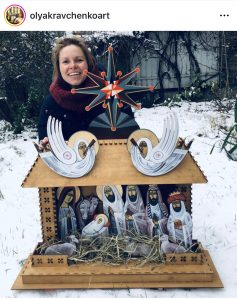
olyakravcenko nativity
It’s almost time to get those jingle bells ringing – let Godspace be a resource to you as you prepare! We offer many devotionals, gifts, prayer cards, free downloads, retreats, and more. Check it out in our shop under the category of Advent! You will also find many resources for Celtic Advent, traditional Advent, and Christmas under our resource page Advent, Christmas, New Years & Epiphany
As an Amazon Associate, I receive a small amount for purchases made through appropriate links.
Thank you for supporting Godspace in this way.
When referencing or quoting Godspace Light, please be sure to include the Author (Christine Sine unless otherwise noted), the Title of the article or resource, the Source link where appropriate, and ©Godspacelight.com. Thank you!

